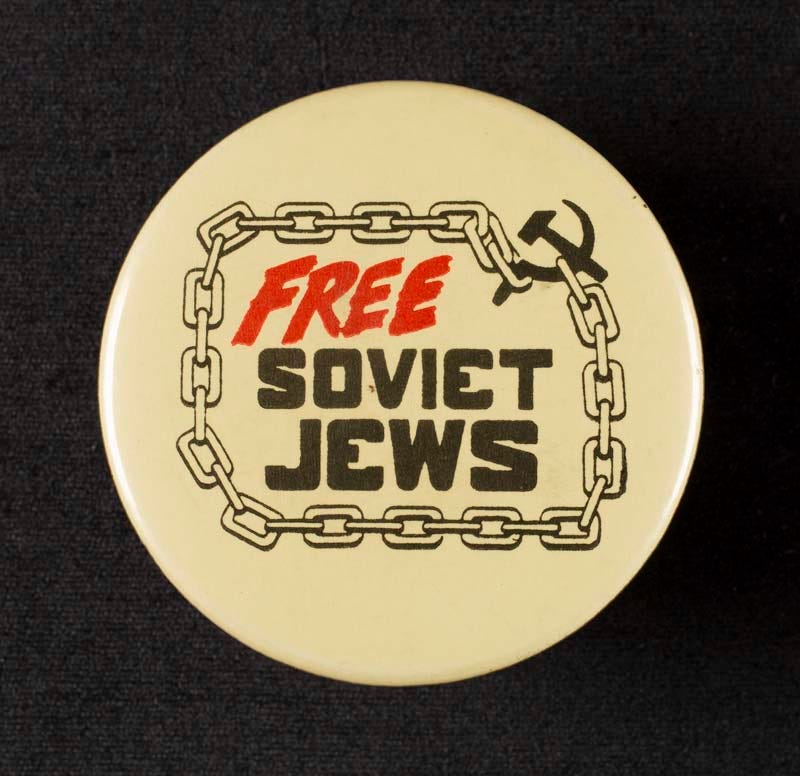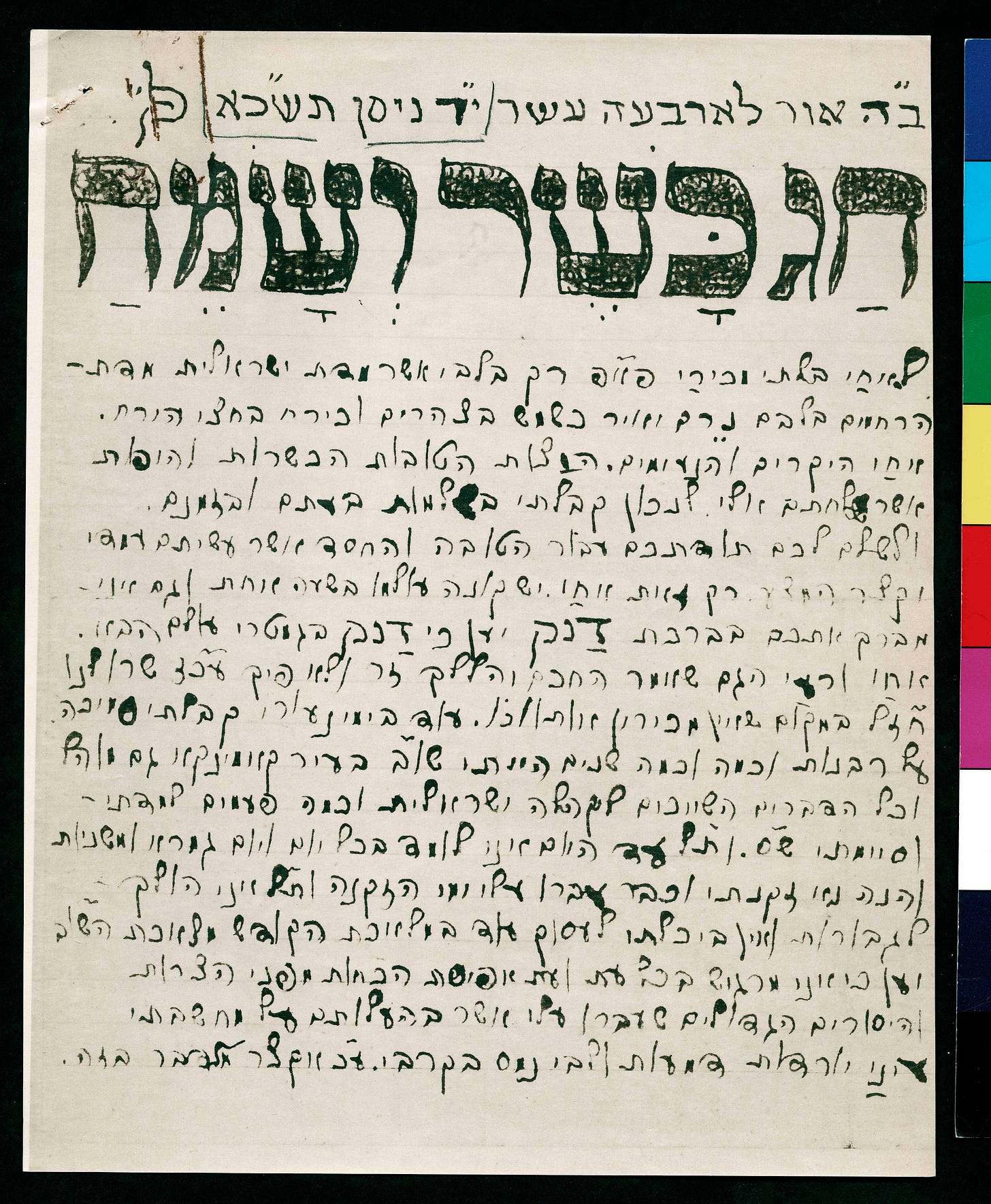You’ll have to forgive me for being a day late — Substack is in some battle with Getty Images, which I was hoping would be over by this morning. Alas, Chosen By Choice marches on!
This week an interview with someone who worked on saving the Soviet Jews, some interesting readings, a quick rant, and a note from a rabbi on my use of the word “convert.”

During his 30 years of service at American Jewish Joint Distribution Committee (aka the Joint), Amir Shaviv participated in planning and executing some of the most complex and imaginative rescues operations. Among the most well known are Operation Solomon (May 1991) – airlifting 15,000 Jews from Ethiopia to Israel within 36 hours. Others: the quiet exodus of 4,000 Jews from Syria (1992-1994), the rediscovery and exit of the forgotten Jews of Yemen (1992-2000), as well as some 11 land-evacuations of convoys from the besieged city of Sarajevo during the war in former Yugoslavia (1991-1994).
During the final years of the Soviet Union (1989-1991), Shaviv was part of a team that entered the USSR, organized young Western tourists, and reached those Soviet Jews.
I called up Amir Shaviv, who lives today in Riverdale, New York. And I asked him to tell me what it was like.
At the end of 1952, a group of operators from the newly created intelligence community of Israel met, very concerned about what was happening to the Jews in the Soviet Union. The purges were at their highest. Jews were not only not allowed to maintain any Jewish life — no synagogue, no Torah — they were basically removed from all positions in society. An agency called Nativ (pathways) was formed. And the mission was very simple: get to these Jews.
The Soviet Union didn’t want outsiders to do that. But there was an Israeli embassy in Moscow at the time, so Israeli diplomats under disguise as a cultural attache or an agricultural attache would be seeking out Jews. They would secretly bring a Siddur, Tallit, anything religious.
They would sometimes sit in a public park and leave behind a Hebrew book or an Israeli newspaper, any artifact that could indicate that they were Jewish and there to help. It was obviously dangerous. Every once in a while the KGB would ambush these diplomats, arrest the Jews, and expel the diplomats. I personally knew three of them! I admired them.
The Joint funded a publishing house that translated and printed in Russian books from the new Israeli literature, all printed in small pocketbook size with soft covers so you can easily smuggle it in. The most desirable books Russian Jews wanted to read were memoirs of Israeli prime ministers, and “Exodus: A Novel of Israel” by Leon Uris, and they would move to hand to hand until they fell apart. JDC funded something like a million copies.
But after Israeli’s victory in 1967, the Soviet Union severed diplomatic relations with Israel. The Jewish world thought what do we do now? We can’t give up.

A whole new system was devised: British tourists, French tourists, young Americans — people like you. They would go in carrying the Hebrew books. They would be given telephone numbers of Jews and taught to disguise the numbers by writing them as entries in their checkbooks.
We developed a system of sending in packages to Jewish refuseniks (so-called because the Soviet Union refused to let them leave to go to Israel) as if they were shipped from relatives, based on a big index of names and addresses of Jews made over decades. Everyone gave more names to add to the list.
The packages were sent from warehouses in Switzerland, Sweden, Finland and disguised as family care packages. Between 1989-99 I was the liaison between JDC and the operation that masterminded the package shipments.
A family of refuseniks that were fired from their jobs and had no income could live for months selling items in a single package one-by-one. What were these items? American Levi jeans, silk stockings for women, sometimes a leather jacket, a few food items with a long shelf life. The Soviet citizens loved Western products.
The most important part of the package was hope. It signaled to the refuseniks that Soviet Jews there were not alone, not forgotten. There are Jewish people in the world ready to help them. It was trying to maintain a small flickering Jewish fire. You cannot bring in more coal, you cannot bring more fire. All you can do is try to fan it.
The people who received these had no idea who was behind it all. Sometimes they tried to write letters back to these fictitious addresses. They would write: “Dear aunt, these jeans saved our lives.”
After the gates opened and more than a million Jews left, the struggle died of a natural cause: Communism collapsed. It disappeared from the mind of American Jews and from the American education system. For the last 30 years, there’s literally no interest. None.
The educational system committed a terrible sin by not teaching this history.
I speak to younger audiences and their jaws drop, “Oh really?!” they say. Americans from Russian origin! The response is a lot of surprise. “Oh we didn’t realize.”
In recent years, a new generation of North Americans with Soviet Jewish origins have started to explore this. They have started asking their parents: How did we get here? Who helped us?
Nellie here again!
Now I take a more pessimistic view than Amir does. I don’t think this history was forgotten because of success. I think this history has been intentionally wiped from the liberal American education system and chased from memory for political purposes. To know what happened in the Soviet Union and to keep that memory alive is to complicate the movement. And of course complexity is danger. Ideas like nuance and phrases like “both sides” are coded now in liberal America as right-wing (I’m dead serious!). We can’t linger on something like the Soviet Union’s atrocities. It’s suspicious even that I want to.
One step further: I would posit that in many ways the Soviet Union did win…. But that’s an essay for later, for a fiery day, not this cozy overcast Los Angeles April morning.
As for my growing reading list. I keep getting emails with suggestions for books I hadn’t considered or heard of… Here are some of those — and a plea to please keep sending!
BOOKS
First, there are two books I’ve been pointed to a couple times now — both were written by communist sympathetic Western reporters who spent time in the Soviet Union and grew to despise it. The work of Malcom Muggeridge, a correspondent for the Guardian in the Soviet Union. And Eugene Lyons’ “Assignment in Utopia.”
Other books I hadn’t heard of that I want to read/spread word about:
Alexander Solzhenitsyn’s “From Under The Rubble” — essays by six dissident colleagues living in the USSR.
Vladimir Bukovsky, “To Build A Castle.”
“The Forsaken” by Tim Tzouliadis: It chronicles a few thousand Americans who joined the communist revolution and ended up in the gulag in the 1930s, persecuted by Stalin and abandoned by America.
And then there’s the definitive book on the movement to save Soviet Jewry written by my old colleague Gal Beckerman, “When They Come For Us, We'll Be Gone”
AUDIO TO LISTEN TO
Kevin McKenna on Solzhenitsyn, the Soviet Union, and In the First Circle
ARTICLES TO READ
'Sad And Absurd': The U.S.S.R.'s Disastrous Effort To Create A Jewish Homeland (NPR)
And a thoughtful reader email about my use of the word “convert” in this blog:
Shalom Nellie,
I have been following your blog with both personal and professional interest for some time now and appreciate your candid sharing of your experiences while learning and living Judaism.
Personal interest, because I have two very beloved daughters-in- law who chose Judaism as adults (actually one at age 14 when she first started dating my younger son!). They have both created wonderfully observant families—and read Hebrew better than I can myself!
And, professional, because for 18 years I facilitated The Introduction to Judaism Class for the Oregon Board of Rabbis, and since retiring continue to mentor a number of my former students as they grow in their Jewish community involvement.
I want to share one special idea, based on the Talmudic prohibition against recognising one who chooses Judaism as being different from one born to Judaism. I always began my work with my “Intro Students” with this statement which I repeated many times during the 18 week course: “There is no such thing as A Convert! “Convert” is a verb ( emphasis on the second syllable). Once you complete the conversion process you are a Jew, with all the privileges and responsibilities of any other person of the Jewish faith!”
Continue your good work of sharing your journey, and always keep learning! At 77 years of age, I have recently become an avid student of Mussar and with Hashem’s grace, will continue to learn as long as I live on this earth and beyond.
Kol Tuv,
Sheri Cordova





On "The mission was very simple: get to these Jews." And they did. The Jews whose families came from the Soviet Union/Russia and now live in Israel have dramatically changed the country. On this, check out the articles by Matti Friedman. I do not know if that history has been forgotten or deiscarded because of the discomfort of a new generation refusing to look deeply at the complexities of history and politics. [There is no single philosophical definition of social justice--only philosophical disputes and dialogues.] But I do know that if we are to understand how to handle the many issues we confront today, we must do so with brutal honesty and with an ability to examine them with as much objectivity as we can mobilize and with an absolute commitment to speak freely about what we have learned.
Hi Nellie,
Very nice piece. I had forgotten that the Soviet Union broke off relations with Israel after the 1967 war. That was the beginning of the current problems for the Soviet Jews whom we know who live now in San Francisco. The as-usual draconian Soviet response comes as no surprise, even as one recalls how important certain Jews were to the success of the revolution in that country.
Also, just as a note, you and Bari have turned me on to Substack, where I will begin writing soon.
All. best, Terry (www.terenceclarke.org)